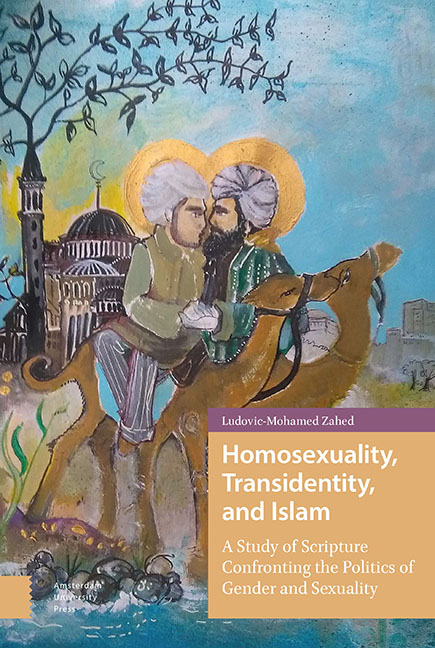 Homosexuality, Transidentity, and Islam
Homosexuality, Transidentity, and Islam Book contents
- Frontmatter
- Contents
- List of Figures
- Acknowledgments
- Foreword
- Introduction
- I The Qur’anic Ethics of “Nature”: Gender, Sexuality, and Diversity
- II Distressing Qur’anic Verses?
- III The Prophet: A Living Incarnation of Qur’anic Ethics
- IV Islamic Apocrypha Advocating the Stoning of “Sodomites”
- V Postcolonial Orientalisms
- VI “Abnormals”: From Cultural Diversity to Dogmatic Uniformity
- VII Towards a Structural Reevaluation of Cultural Values
- VIII Pan-Arabist Literary and Identity Censorship
- IX Orientalist Shi’ism and Literary Homoeroticism
- X Homonationalism and Performative Sexual Categorization
- XI A “Crisis” of Categories, Geopolitics or Civilization
- Conclusion
- Afterword
- Bibliography
- Index
Conclusion
Published online by Cambridge University Press: 20 November 2020
- Frontmatter
- Contents
- List of Figures
- Acknowledgments
- Foreword
- Introduction
- I The Qur’anic Ethics of “Nature”: Gender, Sexuality, and Diversity
- II Distressing Qur’anic Verses?
- III The Prophet: A Living Incarnation of Qur’anic Ethics
- IV Islamic Apocrypha Advocating the Stoning of “Sodomites”
- V Postcolonial Orientalisms
- VI “Abnormals”: From Cultural Diversity to Dogmatic Uniformity
- VII Towards a Structural Reevaluation of Cultural Values
- VIII Pan-Arabist Literary and Identity Censorship
- IX Orientalist Shi’ism and Literary Homoeroticism
- X Homonationalism and Performative Sexual Categorization
- XI A “Crisis” of Categories, Geopolitics or Civilization
- Conclusion
- Afterword
- Bibliography
- Index
Summary
Many queer Muslims consider transgressive figures suchas Abu Nuwas to be the first historical figure inthe history of Arab-Muslim societies to disagreewith what would be called today a heteronormativesocial order. More specifically, these socially andpolitically engaged citizens are trying, throughArab-Muslim LGBT+ associations, to prove at allcosts, taking up the exact opposite argument ofnationalist or dogmatic Muslims, that homosexualityis indeed a modern, categorizing concept, but onethat is still an integral part of the constructionof identity and the struggle for “justice,” asdescribed by Samar Habib (2009). Admittedly, duringthe Abbasid period and at the beginning of theOttoman Empire, pederasty was almost exclusivelyreported as having been “trans-generational.” Somesoldiers, who had the reputation of being generally“active,” were described as fighting over “passive”male youths. Moreover, ephebes were still consideredas sexual objects for “heterosexual” or “bisexual”men – even if these terms are anachronisms – in theMamluk dynasty, according to David Ayalon (1999).Allegedly, these ephebes served to prevent the olderMamelukes from having a right of sexual access tothe youngest male recruits. Described as “feminineand “docile” in bed at night, but manly and warlikeduring a military campaign or in similarcircumstances, they acted as shields against thepaedophilic appetite of certain notables.
Today, in view of the ethnographic data collectedduring my research, I cannot assert that sexualityis by nature “repressed” in the “Arab world” as doesRaphael Patai (1946, p. 106). Moreover, I cannotclaim “that Arabs only understand force and […] that[their] biggest weakness […] is shame andhumiliation” in the face of domination, whethermilitary or sexual, as does one of Seymour Hersh’s(2004) sources in Washington a few months before theUS-led invasion of Iraq. Finally, it is not possiblefor me to go so far as to confirm that notconsidering oneself homosexual, when one has sexwith individuals of the same sex, is systematicallysome kind of Freudian defence mechanism, which iswhat Sofian Merabet (2004, p. 33) contends about menwho have sex with men in Beirut.
- Type
- Chapter
- Information
- Homosexuality, Transidentity, and IslamA Study of Scripture Confronting the Politics of Gender and Sexuality, pp. 107 - 116Publisher: Amsterdam University PressPrint publication year: 2019


